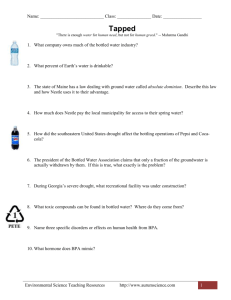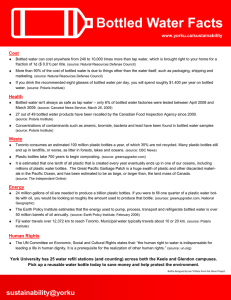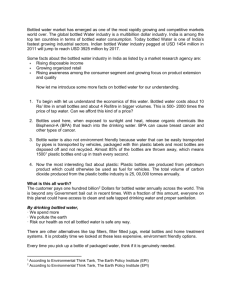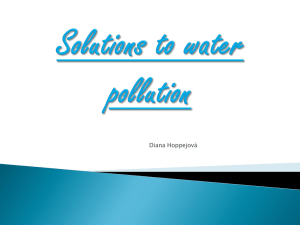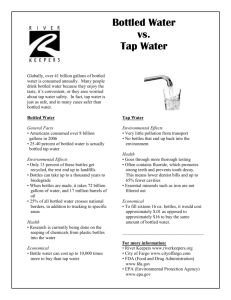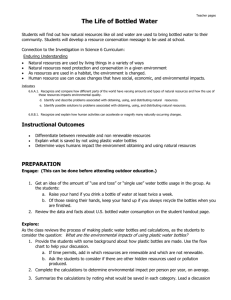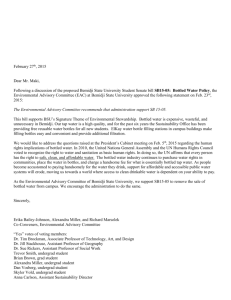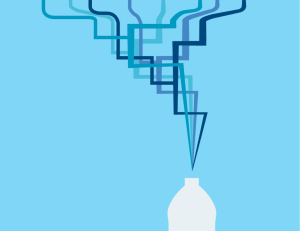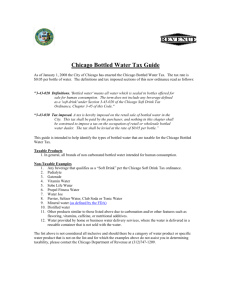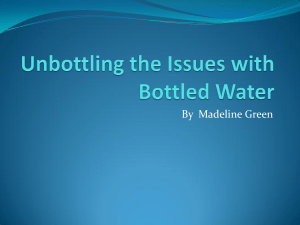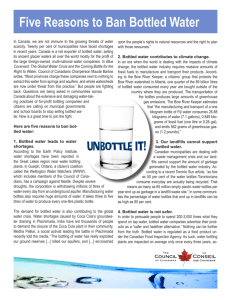R9-12 Consumption of Commercially Bottled Water in the Diocese
advertisement
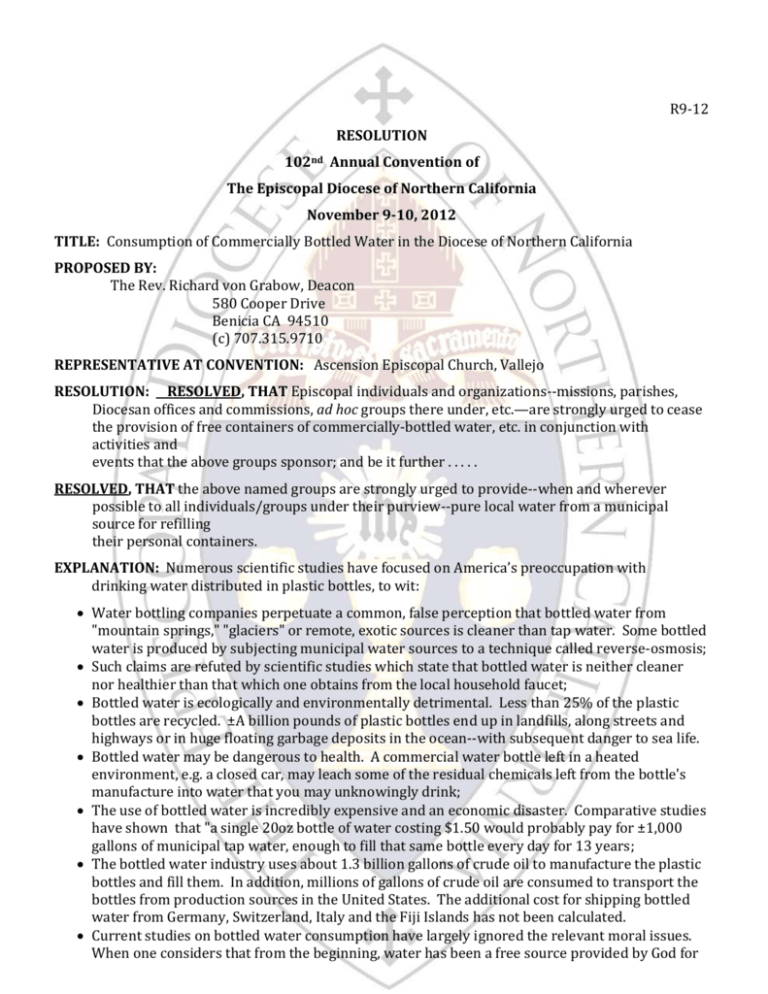
R9-12 RESOLUTION 102nd Annual Convention of The Episcopal Diocese of Northern California November 9-10, 2012 TITLE: Consumption of Commercially Bottled Water in the Diocese of Northern California PROPOSED BY: The Rev. Richard von Grabow, Deacon 580 Cooper Drive Benicia CA 94510 (c) 707.315.9710 REPRESENTATIVE AT CONVENTION: Ascension Episcopal Church, Vallejo RESOLUTION: RESOLVED, THAT Episcopal individuals and organizations--missions, parishes, Diocesan offices and commissions, ad hoc groups there under, etc.—are strongly urged to cease the provision of free containers of commercially-bottled water, etc. in conjunction with activities and events that the above groups sponsor; and be it further . . . . . RESOLVED, THAT the above named groups are strongly urged to provide--when and wherever possible to all individuals/groups under their purview--pure local water from a municipal source for refilling their personal containers. EXPLANATION: Numerous scientific studies have focused on America’s preoccupation with drinking water distributed in plastic bottles, to wit: Water bottling companies perpetuate a common, false perception that bottled water from "mountain springs," "glaciers" or remote, exotic sources is cleaner than tap water. Some bottled water is produced by subjecting municipal water sources to a technique called reverse-osmosis; Such claims are refuted by scientific studies which state that bottled water is neither cleaner nor healthier than that which one obtains from the local household faucet; Bottled water is ecologically and environmentally detrimental. Less than 25% of the plastic bottles are recycled. ±A billion pounds of plastic bottles end up in landfills, along streets and highways or in huge floating garbage deposits in the ocean--with subsequent danger to sea life. Bottled water may be dangerous to health. A commercial water bottle left in a heated environment, e.g. a closed car, may leach some of the residual chemicals left from the bottle's manufacture into water that you may unknowingly drink; The use of bottled water is incredibly expensive and an economic disaster. Comparative studies have shown that "a single 20oz bottle of water costing $1.50 would probably pay for ±1,000 gallons of municipal tap water, enough to fill that same bottle every day for 13 years; The bottled water industry uses about 1.3 billion gallons of crude oil to manufacture the plastic bottles and fill them. In addition, millions of gallons of crude oil are consumed to transport the bottles from production sources in the United States. The additional cost for shipping bottled water from Germany, Switzerland, Italy and the Fiji Islands has not been calculated. Current studies on bottled water consumption have largely ignored the relevant moral issues. When one considers that from the beginning, water has been a free source provided by God for all his creation, then there can be no doubt that the privatization of water sources for corporate profit is a violation of creation. FISCAL IMPACT: The reduction in the need for Episcopalians to purchase commercially bottled water in bulk quantities will decrease the necessary budgetary allocations. RELATION TO DIOCESAN STRATEGIC PRIORITIES: The passage of this resolution will contribute to lessening the fiscal impact on the Diocese of Northern California and its individual constituencies and organizations. The effect of less water bottle usage will reduce environmental damage.
